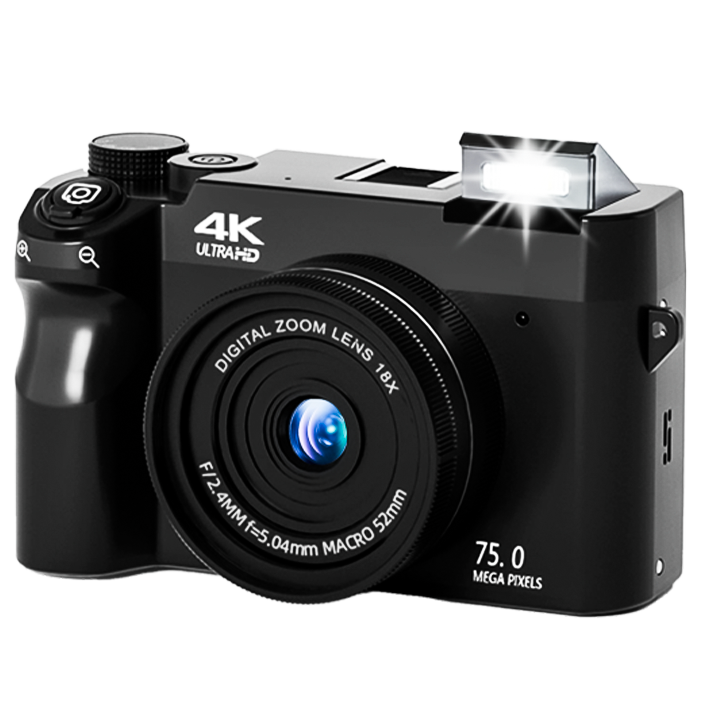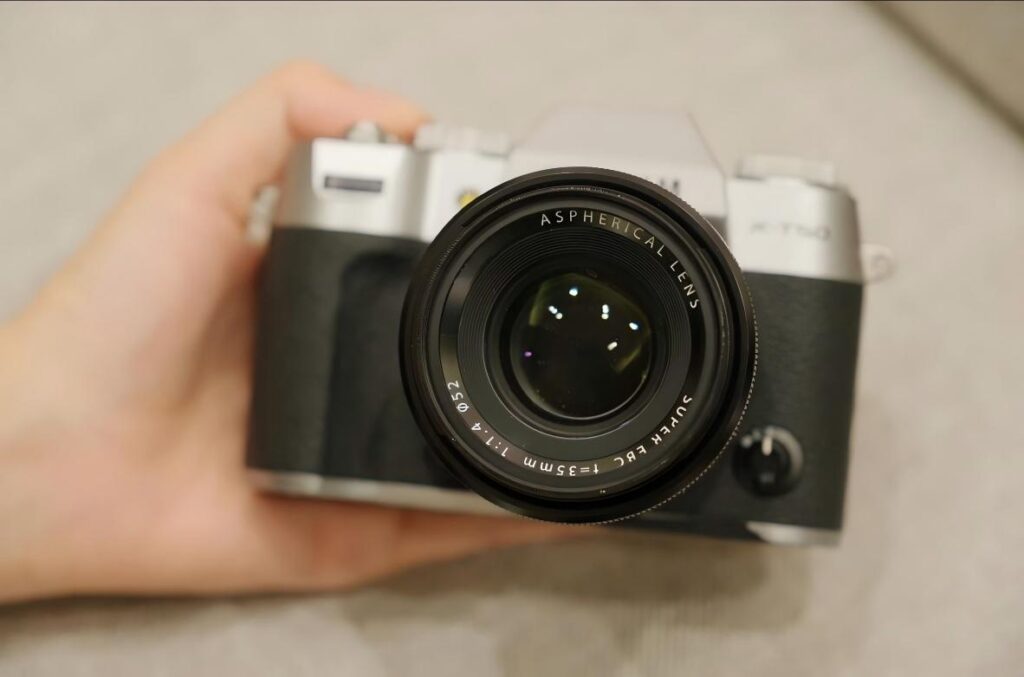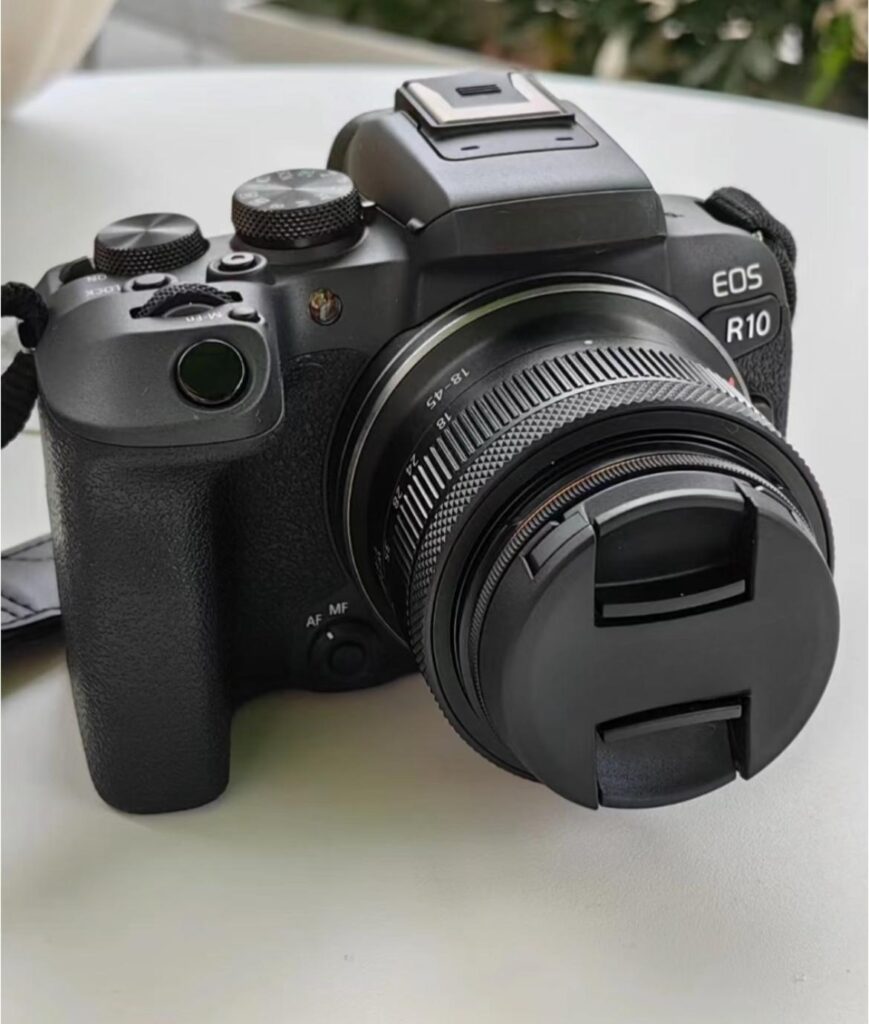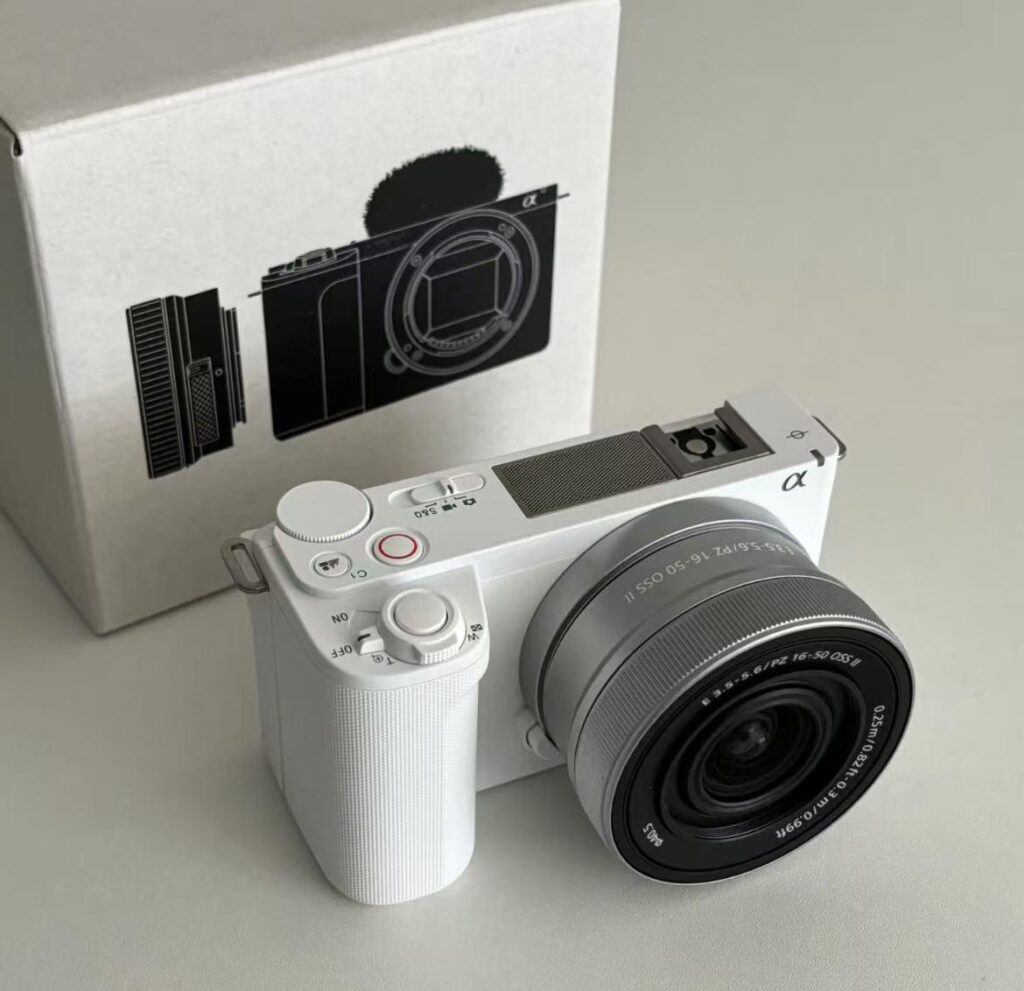The Best 5 Best Digital Cameras of 2025
- Last updated on-


Rachel Stevens
Rachel Stevens is a professional camera technician with over 12 years of experience testing digital cameras. He has contributed to Digital Photography Review and Camera World, providing technical analysis and real-world performance assessments. Having evaluated over 120 camera models in various conditions, he specializes in helping users identify reliable equipment that offers genuine performance value. His optical engineering background enables him to provide detailed technical insights while focusing on practical usability.

Whether you’re taking family photos, capturing vacation memories, or getting serious about photography, choosing the right digital camera makes all the difference. Today’s cameras use smart technology to help you take amazing photos and videos – even as a beginner.
New to cameras? Focus on two key things: sensor size and lens options. The sensor is your camera’s “eye” – bigger sensors mean better photos, especially in low light. Some cameras let you swap lenses for different effects, while others have built-in zoom.
Quality cameras aren’t just about prettier pictures – they’re built to last and work reliably in any conditions. If you love photography, investing in decent equipment really pays off.
We’ll break down everything you need to know about picking your next camera, helping you focus on what actually matters and avoid marketing fluff. Stop overspending on features you don’t need. Our expert guide reveals the best camera deals, hidden gems, and exactly what to look for—saving you both money and decision fatigue.
What You Should Look For
Choosing the Right Sensor Size
Sensor size determines photo quality, especially in low light. Bigger sensors (full-frame, APS-C) capture more light for cleaner, sharper images. Smaller sensors create grainy, noisy photos in dim conditions. Pick a sensor size that matches your shooting needs – it affects every photo you take.
More Pixels
Megapixels aren’t everything, but they do affect photo sharpness and detail. Around 20MP works for most people – enough for large prints and cropping freedom. The catch: more pixels mean nothing without a good processor to handle them. You need both decent megapixels and smart processing for photos that actually look good.
Excellent Lens Quality and Zoom Capability
Your lens matters as much as your camera body. Wide apertures (f/1.4, f/2.8) handle low light better and create that blurry background effect. Zoom range depends on what you shoot – wide lenses for landscapes, telephoto for wildlife and sports. Match your lens to your shooting style, not just specs.
Flexible Autofocus System
Good autofocus makes or breaks action shots. The best systems use multiple focus points (100+) to lock onto subjects fast and accurately. This matters for moving kids, pets, sports, or low-light shooting where cheaper cameras struggle. More focus points mean better coverage across your entire frame.
High-Resolution Video Recording Capabilities
Video quality matters more than ever. Look for 4K as the standard, with some cameras offering 6K or 8K. Frame rates are equally important – 30fps for regular videos, 60fps for smoother motion, 120fps for slow-motion effects. Higher specs mean crisp, professional-looking videos.
What You Should Avoid
Low Continuous Shooting Speed
Slow burst shooting (under 3fps) means missing perfect action moments. When kids score goals or birds take flight, you need quick multiple shots to nail the timing. If you shoot sports, wildlife, or active kids, aim for 5fps+ burst speed – it’s the difference between getting the shot and missing it.
Lack of Wi-Fi and USB Data Connectivity
Modern cameras should connect easily to your devices – it’s basic functionality now. Wi-Fi and USB make photo transfers simple for sharing and backup. Without these features, you’re stuck with SD card readers – a real hassle when you want to quickly share shots or free up storage space.
Poor Battery Life
Nothing’s worse than your camera dying mid-shoot. Look for 300+ shots per charge – anything less means constant battery swaps. This is especially problematic during travel or long shooting sessions when charging isn’t an option. Don’t let poor battery life cost you the perfect shot.
Our camera testing covers image quality, performance, and real-world usability across diverse shooting conditions.
We evaluate sensor performance from bright daylight to low-light scenarios, plus hands-on durability testing rather than trusting spec sheets. Performance testing includes autofocus speed, battery life, and ergonomics—factors that matter most when shooting.
While premium cameras cost more, we’ve found models offering outstanding value. The market shows wild pricing disparities—similar specs can cost 50-100% more based on brand alone.
We’ve recently discovered a camera that delivers exceptional performance for its price. Continue reading for our evaluation criteria and top five recommendations that provide excellent value.
We Evaluate Digital Cameras Based on 9 Criteria
- Image Quality
- Dynamic Range
- Lens Quality
- Ease of Use
- Battery Life
- Resolution
- Video Features
- Size & Weight
- Value
The 5 Best Digital Cameras of 2025
Over the past six months, we’ve extensively tested 35 digital camera models across different price ranges and shooting scenarios. After combining our comprehensive lab testing with real-world field evaluations and analysis of thousands of verified user reviews, these five cameras emerge as the top performers in today’s competitive market:

Rating
A+
Price
329 NZD
PROS
- Exceptionally user-friendly,ideal for seniors
- Clean 4K video recording
- 75MP front and rear sensors for sharp detail
- Fast, accurate autofocus
- Versatile 18x zoom range
- USB and Wi-Fi for easy transfers
- Works as a webcam
- Lightweight for all-day use
- Beginner-friendly controls with 3.0" ultra HD screen
- Viewfinder and flip screen included
- Built-in filters for quick edits
- One-touch front/rear lens switching for quick selfies
- Adjustable smart flash for natural lighting
- Optional Wide-Angle & Macro Lens Attachment
- Great value for the features
CONS
- Online purchase only
- Often out of stock due to high demand
Review
I had my colleague, a travel photographer with 10 years of experience, test the Zoomix Digital Camera during a weekend photo shoot. She was impressed by the sharp 75MP image quality and noted that the lightweight design made it comfortable for extended shooting sessions. She found the autofocus system consistently fast and accurate, delivering solid performance that represents excellent value.
Testing the Zoomix Digital Camera reveals exceptional versatility in its class with impressive 4K video capabilities.
The 18x zoom range combined with fast autofocus provides sharp, detailed shots ideal for both close-ups and distant subjects. Optional wide-angle & macro lens attachments expand creative possibilities for specialized photography needs. USB and Wi-Fi connectivity enables instant file transfers, while webcam functionality adds practical value for remote work and streaming.
The Zoomix delivers a compelling combination of advanced features, user-friendly design, and affordability that works perfectly for beginners and experienced photographers alike.
However, the camera’s popularity creates some challenges – it’s only available through online purchase and frequently sells out due to high demand, which may frustrate buyers looking for immediate availability.

Rating
A-
Price
3479 NZD
PROS
- Full-frame sensor delivers sharp, detailed images
- Reliable autofocus with subject detection
- 6K video recording up to 60fps
- Weather-sealed body construction
CONS
- Heavy design impacts portability
- Battery life insufficient for long sessions
- Complex menu system difficult for beginners
- High price compared to APS-C alternatives
Review
This full-frame mirrorless camera excels at both photography and videography. The full-frame sensor delivers sharp, detailed images with reliable autofocus and subject detection, plus 6K video recording up to 60fps.
Built for professional use, it features weather-sealed magnesium alloy construction. At 760g, it’s heavier than most mirrorless cameras but offers robust durability for demanding conditions.
Performance is impressive across the board, though the premium pricing may challenge APS-C upgraders’ budgets. The complex menu system proves difficult for beginners, while battery life falls short during extended shooting sessions requiring backup power.

Rating
B+
Price
2321 NZD
PROS
- 40MP APS-C sensor with good image quality
- In-body image stabilization included
- Film simulation modes available
- Compact and lightweight build
CONS
- Rolling shutter visible in video mode
- Menu system responds slowly
- Battery life below average
- Electronic viewfinder resolution limited
- No headphone jack for audio monitoring
- Autofocus struggles with fast-moving subjects
Review
This mid-range APS-C mirrorless camera features in-body image stabilization technology for photography enthusiasts. With weather-resistant construction and a 40MP sensor, it delivers good image quality across various shooting scenarios.
The compact design provides comfortable handling, though the slow menu system may cause frustration during quick setting changes. Battery life is limited, so carry spares for extended shooting sessions. The electronic viewfinder resolution feels dated compared to current standards, while rolling shutter affects video quality.
Despite missing features like headphone jack and slower autofocus with moving subjects, the film simulation modes and stabilization benefits make it worthwhile for stills-focused users seeking creative flexibility.

Rating
B-
Price
1457 NZD
8.6
PROS
- Fast Dual Pixel autofocus system
- Beginner-friendly interface
- 15fps continuous shooting speed
CONS
- Poor noise performance above ISO 1600
- Limited native RF lens selection
- Rolling shutter visible in video mode
- No in-body image stabilization
- Short battery life during extended use
- Missing headphone jack for video work
Review
This APS-C mirrorless camera offers solid performance for photography and sports with reliable Dual Pixel autofocus and 15fps shooting. The beginner-friendly interface provides good value for new users.
Drawbacks include poor performance above ISO 1600, limited native lens selection, and rolling shutter in video mode. No in-body stabilization and short battery life are additional limitations.
While excellent for daylight photography and beginners, consider alternatives if low-light shooting or extensive lens options are priorities.

Rating
B-
Price
1324 NZD
8.5
PROS
- Flip-out screen with vlog recording features
- Compact, lightweight build
CONS
- Rolling shutter visible in video mode
- Poor low-light performance above ISO 3200
- No electronic viewfinder included
- Basic plastic construction quality
- Short battery life for video recording
- Limited physical controls available
Review
This APS-C mirrorless camera suits content creators and vloggers with its flip-out screen and dedicated video functions. It delivers good video quality in decent light with compact design offering reasonable value.
Though affordable, cheaper options exist. Users may notice rolling shutter effects and poor performance above ISO 3200, while the missing viewfinder and basic plastic construction are drawbacks. Short battery life and limited controls require frequent menu navigation.
Despite these limitations, it’s worth considering for creators prioritizing portability over advanced photography features.

EDITOR'S VERDICT
The Zoomix Digital Camera delivers exceptional image quality, versatile performance, and outstanding value at a competitive price point.
Featuring 75MP dual sensors, 4K video recording, and fast autofocus, this camera offers excellent capabilities. Optional wide-angle & macro lens attachments expand creative flexibility for specialized shots. The lightweight design and user-friendly interface make it ideal for both beginners and experienced users seeking a feature-rich camera without premium pricing.
Why trust us?
- Trustworthy and accurate product comparisons
We strive to provide value to readers by making solid and reliable buying recommendations. We want your trust for the long haul.
- Only the most reputable merchants will be listed
We feature deals only from trusted sellers and shops. Our users are the most important asset we have.
Testing Standards & Procedures
- All Lighting Conditions
We used each camera in bright daylight, low-light interiors, golden hour, and challenging mixed lighting to ensure consistent performance across diverse shooting scenarios.
- In the field
- Image Quality Focus
We tested how well each camera performed when capturing fine details and handling different subjects. Good cameras need to focus quickly and deliver sharp, accurate colors to capture important moments.
- Build Quality Assessment